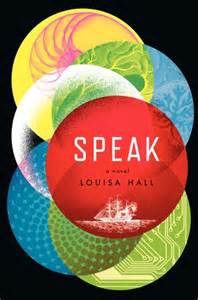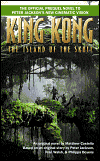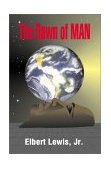
Speak, by Louisa Hall
Book Review by SJ Higbee
I scooped this off the library shelves, caught by the arresting cover, and opened up the book. The riveting opening pages and high quality of the writing pulled me in and despite the fact that my own TBR is now in danger of engulfing a small grandchild, decided to take it home.
A young Puritan woman travels to the New World with her unwanted new husband. Alan Turing, the renowned mathematician and code breaker, writes letters to his best friend's mother. A Jewish refugee and professor of computer science struggles to reconnect with his increasingly detached wife. An isolated and traumatized young girl exchanges messages with an intelligent software program. A former Silicon Valley Wunderkind is imprisoned for creating illegal lifelike dolls.
Each of these characters is attempting to communicate across gaps to estranged spouses, lost friends, future readers, or a computer program that may or may not understand them. In dazzling and electrifying prose, Louisa Hall explores how the chasm between computer and human is shrinking rapidly with today's technological advances and how that echoes the gaps that exist between ordinary people. Though each speaks from a distinct place and moment in time, all five characters share the need to express themselves while simultaneously wondering if they will ever be heard, or understood.
And there you have the rather long blurb. However, given the nature of the book, I think it is justified. There are five distinct narrative voices that spool through the book, giving their own experiences, reaching from the past with Mary's account of the long Atlantic crossing and Alan Turing's moving letters, to the future inventor of the babybots, reflecting on his experiences. However this isn't, is a foot-to-the-floor, adrenaline-fueled adventure. What it does is reflect upon the issue of voice, who is heard and continues to be heard and what it means to communicate.
It's no accident that the two historical voices are from marginalized groups -- one a young Puritan woman and the other a homosexual in post-war Britain when people born with such sexual preferences were officially outlawed and disgraced. Both accounts are moving and I found Turing's letters very poignant, given that I knew before I started the book what his fate would be.
It is a very neat plot twist -- to bind up the voices and slices of people's history inside a discarded AI, struggling to conserve her battery as she is stored in a warehouse with other bots for the crime of being too lifelike. I have a feeling this book is one that will stay with me for a long time -- after all, what will be our legacy, those of us who have gone, now we no longer write down our feelings and emotions on paper, but instead, consign them to our computers.Brainfluff and SJ
|
Click here to buy Speak, by Louisa Hall on Amazon
|
Speak, by Louisa Hall on Amazon

| More Books You Might Like |
| Comments on Speak, by Louisa Hall |
| There are no comments on this book. |




